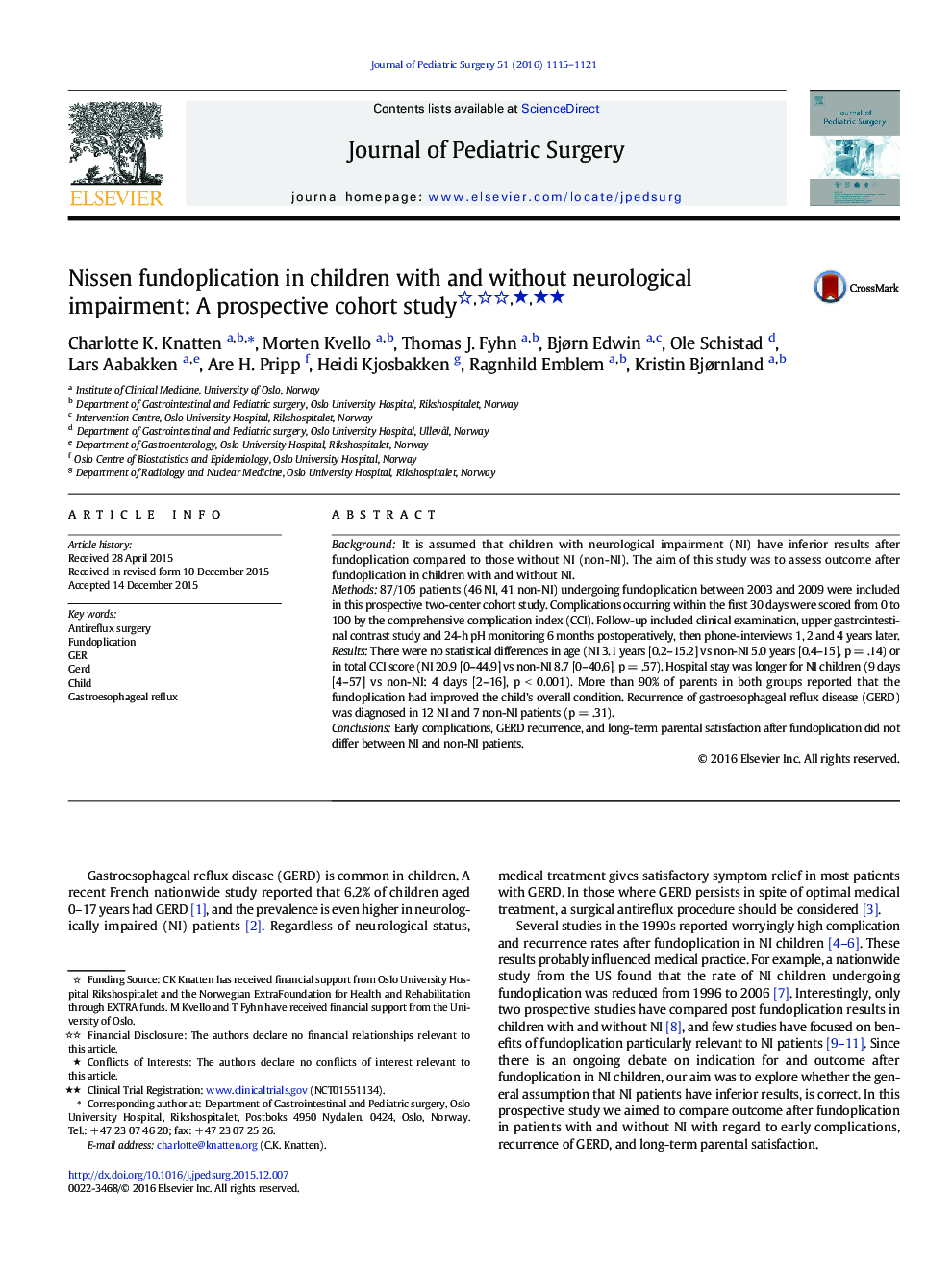| Article ID | Journal | Published Year | Pages | File Type |
|---|---|---|---|---|
| 4154787 | Journal of Pediatric Surgery | 2016 | 7 Pages |
BackgroundIt is assumed that children with neurological impairment (NI) have inferior results after fundoplication compared to those without NI (non-NI). The aim of this study was to assess outcome after fundoplication in children with and without NI.Methods87/105 patients (46 NI, 41 non-NI) undergoing fundoplication between 2003 and 2009 were included in this prospective two-center cohort study. Complications occurring within the first 30 days were scored from 0 to 100 by the comprehensive complication index (CCI). Follow-up included clinical examination, upper gastrointestinal contrast study and 24-h pH monitoring 6 months postoperatively, then phone-interviews 1, 2 and 4 years later.ResultsThere were no statistical differences in age (NI 3.1 years [0.2–15.2] vs non-NI 5.0 years [0.4–15], p = .14) or in total CCI score (NI 20.9 [0–44.9] vs non-NI 8.7 [0–40.6], p = .57). Hospital stay was longer for NI children (9 days [4–57] vs non-NI: 4 days [2–16], p < 0.001). More than 90% of parents in both groups reported that the fundoplication had improved the child’s overall condition. Recurrence of gastroesophageal reflux disease (GERD) was diagnosed in 12 NI and 7 non-NI patients (p = .31).ConclusionsEarly complications, GERD recurrence, and long-term parental satisfaction after fundoplication did not differ between NI and non-NI patients.
